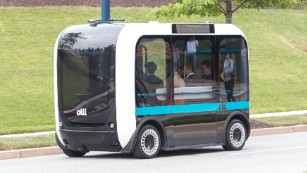Before we bring you those five things, first we give you a recap of the big picture and some of the shifting environmental conditions that clearly threaten our quality of life--if not, existence.
Yesterday we asked you, our global audience, how you were going to celebrate Solar Day (beyond, of course, spending two hours with us)? And how would you carry the lessons into your daily life.
Below are some good ideas on doing just that. Being aware of the general conditions, and tempering your behavior to reduce your personal burden on the eco-system. That is a great way to celebrate any day.
5 things you can do about climate change
A version of this article first published in 2014.
(CNN)There's been a lot of fallout
over US President Donald Trump's decision to withdraw from the
international Paris climate accord, which has been endorsed by nearly
200 countries.
It's
not a huge surprise: the populist, anti-elite American leader promised
he would do just that during his presidential campaign -- although
foreign and business leaders had appealed to him to stay in the pact.
Climate
change isn't something in the far-off future: It's a potentially
disastrous reality that's already starting to have effects that are
expected to worsen, experts say.
So,
while global leaders determine the fate of the Paris agreement, here
are five things you can do right now to help stem the effects of climate
change:
Make small changes at home
It
might not seem like much, but there are a few things you can do around
your home to limit your family's greenhouse gas emissions -- according
to the US Environmental Protection Agency -- and it could save you money, too.
Take a look around your home: What are the five most common lights you use? If you change those bulbs to compact fluorescent light bulbs, they'll use less energy and help reduce your impact on the environment.
Heating
and cooling your home also contributes to your carbon footprint.
Replacing that old thermostat with a programmable thermostat allows you
to turn off the heating or A/C when you're not home. Programmable
thermostats cost as little as $20 -- but can shave hundreds off your
energy bill.
Want to reduce your water waste? Start by replacing that old toilet with one that uses less water. The EPA says toilets account for nearly 30% of the average home's indoor water use.
And, of course, make sure you're involved in your local recycling program.
Be greener at the office
Don't
abandon your earth-friendly habits once you get to the workplace. If
you have a desk job, there are plenty of things you can do to reduce
your emissions at the office. Start by powering down your computer and
other office equipment when you're not using them.
Consider
whether that upcoming business trip is really necessary. Can you
accomplish what you need in a video conference? That's a more
earth-friendly alternative.
And even the little things, like walking a little farther to toss that drink can in the recycling bin, can go a long way.
Change how you get around
If
you live in a city, check out your public transportation options --
even if it's just one day a week. And if you live close to your job, why
not bike or walk to work? It could even save you money on a costly gym
membership.
No
matter where you live, there may be carpooling options. Get on your
neighborhood social feed and see if you live near someone who works in
the same part of town. That could also save a lot of money in gas.
When
you do drive, make sure you're not spending more than 30 seconds idling
and go easy on the gas pedal and brakes. Also, check your tire pressure
on a regular basis. That can really improve your gas consumption rate.
Get informed
The most powerful way the average person can combat climate change is to become informed about it, says J. Marshall Shepherd, former president of the American Meteorological Society and professor at the University of Georgia.
"Obviously,
it makes sense for people to be as efficient and green as possible in
their thinking on a day-to-day basis," he said. "But where I think the
biggest impact that individuals can have is: Becoming climate literate."
If
you educate yourself about what's going on with climate change and what
can be done about it, you can make more informed choices when it comes
time to vote for the people with the power to make big decisions.
"Where
the biggest impacts on our planet will be, will come from large-scale
policy changes and solutions that are influenced by who's in office," he
said.
Only read trusted and verified sources of information about climate change, Shepherd said. He recommends the websites climate.gov and Climate Central (of which he is a board member) for essential facts and resources.
Beyond reading up on the issues, you can still do a small part to influence the big environmental picture.
Get involved and educate others about the big picture
Your
green strategies in your daily life can have a small impact, but the
whole planet has to be on board for dealing with climate change in order
to instigate global effects. Even if everyone in the United States
reduced their emissions, other countries that continue to dump carbon
dioxide into the air would still contribute to warming temperatures and
rising sea levels.
Spread
the word about climate change and educating people. The EPA recommends
that students give presentations on climate change and encourage their
institutions to increase energy efficiency.
Find
out if your community has a climate action plan. There may be ways you
can contribute to local efforts to be greener and adapt to potential
changes that a warming world would bring.
Bottom
line: if you arm yourself with correct information, you can make
informed choices that could affect your community and the planet at
large.




No comments:
Post a Comment